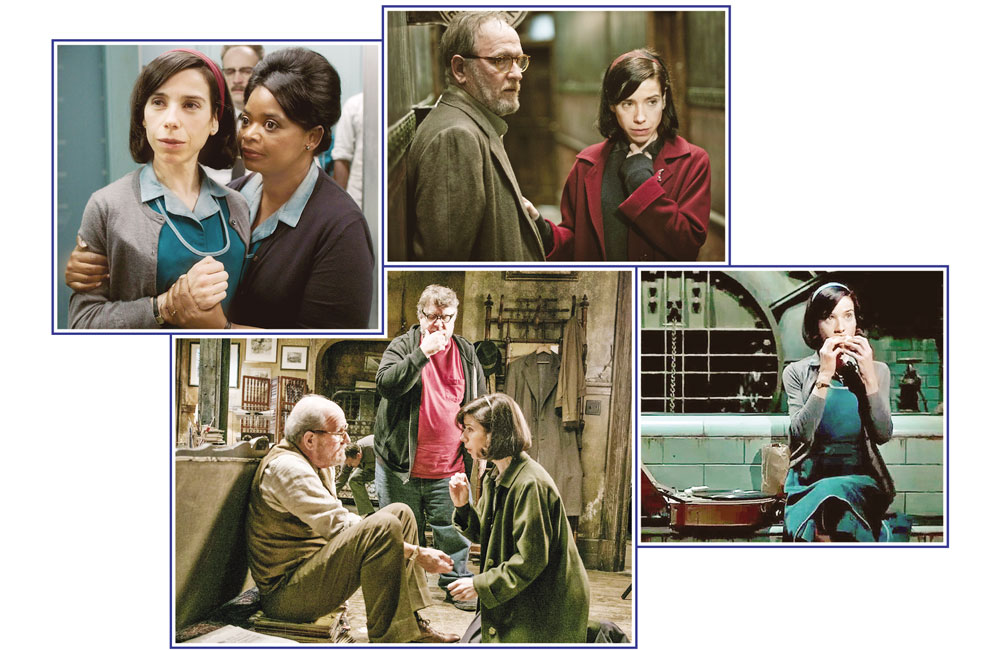What’s to watch on Netflix?
- 13 Apr - 19 Apr, 2024

To say Guillermo del Toro has a definite thumbprint on his film will be an understatement. The colour palette, the genre-specific ambience, the gleefully geek like love for all things campy. Del Toro balances it with box office pleasing content, while making sure that the plot does not sink to that of generic mindless blockbuster fodders.
No wonder del Toro has come up with this delightfully atmospheric fairytale that is whimsical, poignant. It is a pop culture referencing film that has a campy creature-feature hero as its main protagonist.
The Shape of Water (TSOW) has a charm that does a little dance with the audience. Sally Hawkins leads the way and then comes a slew of characters who made the film a richer, darker and substantially wealthier experience.
As far as the story goes: set in the cold war era, Elisa (Hawkins) is an orphan mute. When she was a baby she was found at the shore with gashes on either side of her neck that has impaired her ability to speak. She lives a patterned, routine life that falls into easy steps of day-to-day exercise. She wakes up, fixes breakfast for herself and her neighbour Giles (Richard Jenkins) – one of her two friends. Then she goes off to work in a government facility from night to day, carrying for herself a hard-boiled egg for dinner. There she works with her other friend Zelda (Octavia Spencer), a chatty and wise mother figure who looks out for her, and brings constants barrage of words to her life.
The obvious bad guy in the story is Strickland (Michael Shannon): a true blue army man with a palpable sadistic aura and many ironies. He is a force of unambiguous greyness to the relatively white world of Elisa.
The under-toned greyness turns to darkness when an underwater sea creature (Doug Jones) – called The Asset – is bought to the facility and treated as a commodity. He is tortured with cruelty. Elisa, however, feels she has found a kindred spirit who shares her love of music and sound, and hard-boiled eggs. It is a measure of kindness and empathy that moves from sympathetic approach, to understanding, and ultimately to closeness and the bond of romance.
Sensitive and raw at the same time – as del Toro movies are – TSOW is a fluid film experience that goes through motions that has its own timing and sensibilities. It fluctuates between jarringly (at times) between a commercial and artistic fare. The latter decision, unfortunately, brings an abundance of needless nudity – which the film could have done without. •
COMMENTS